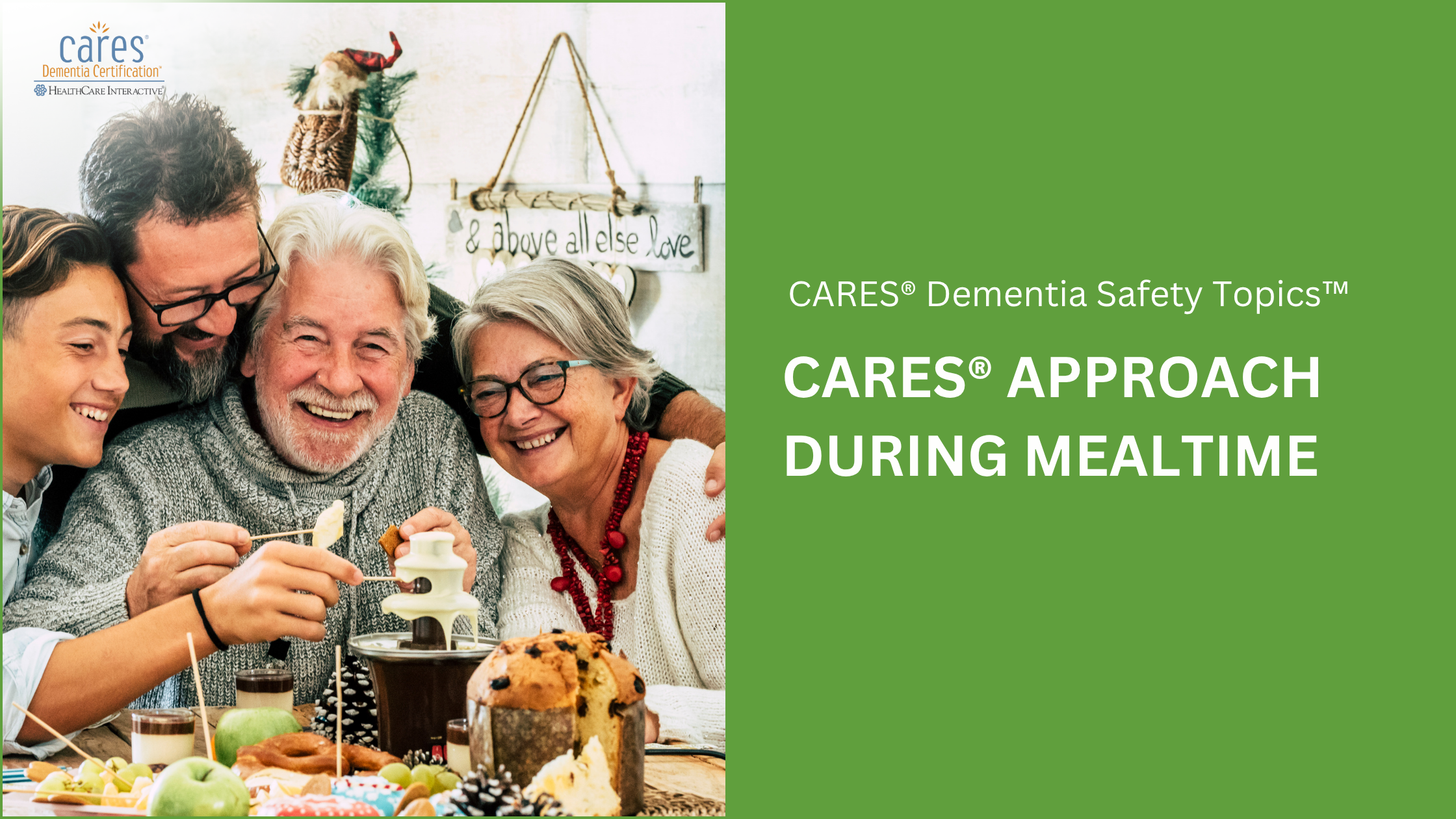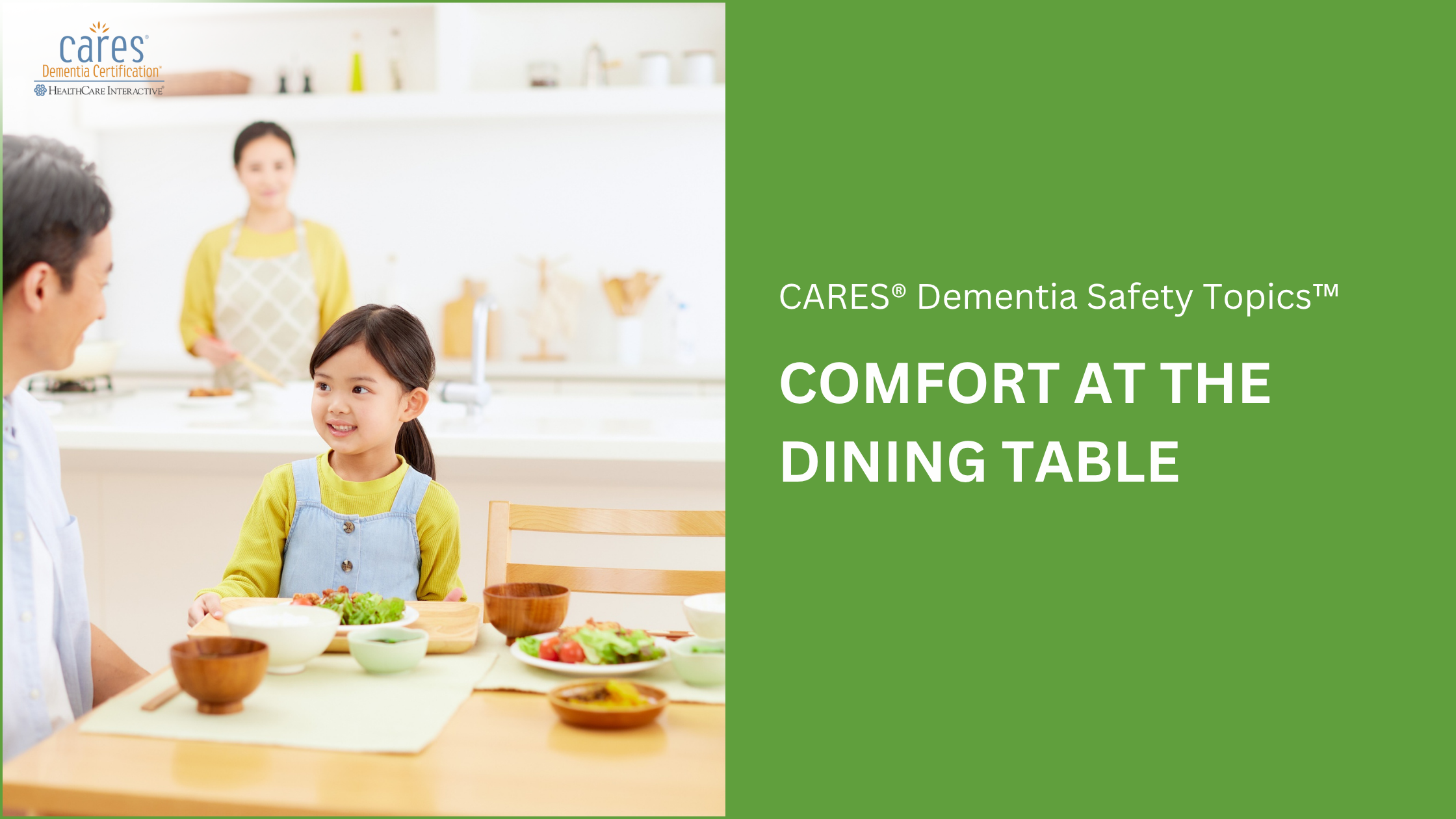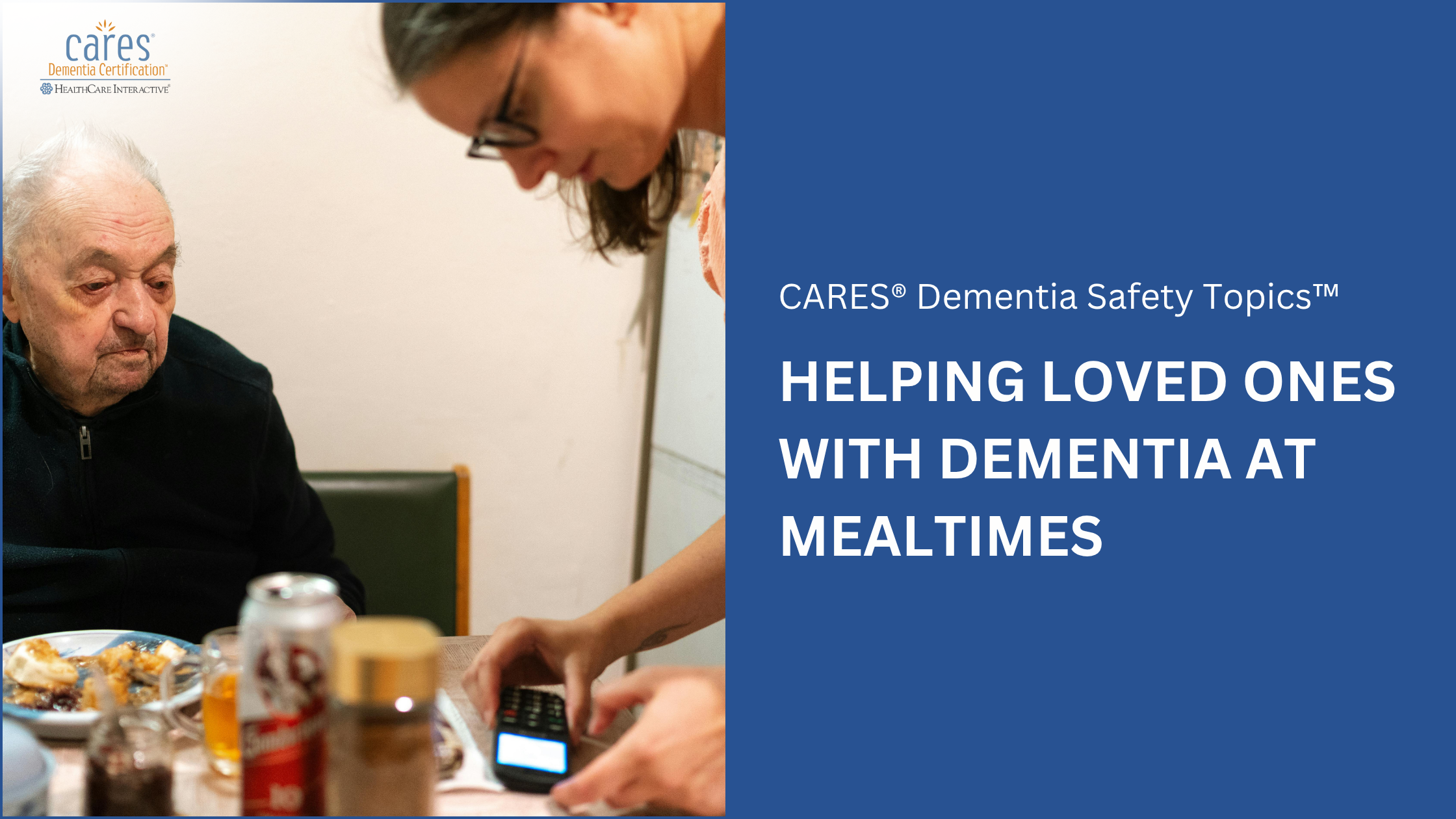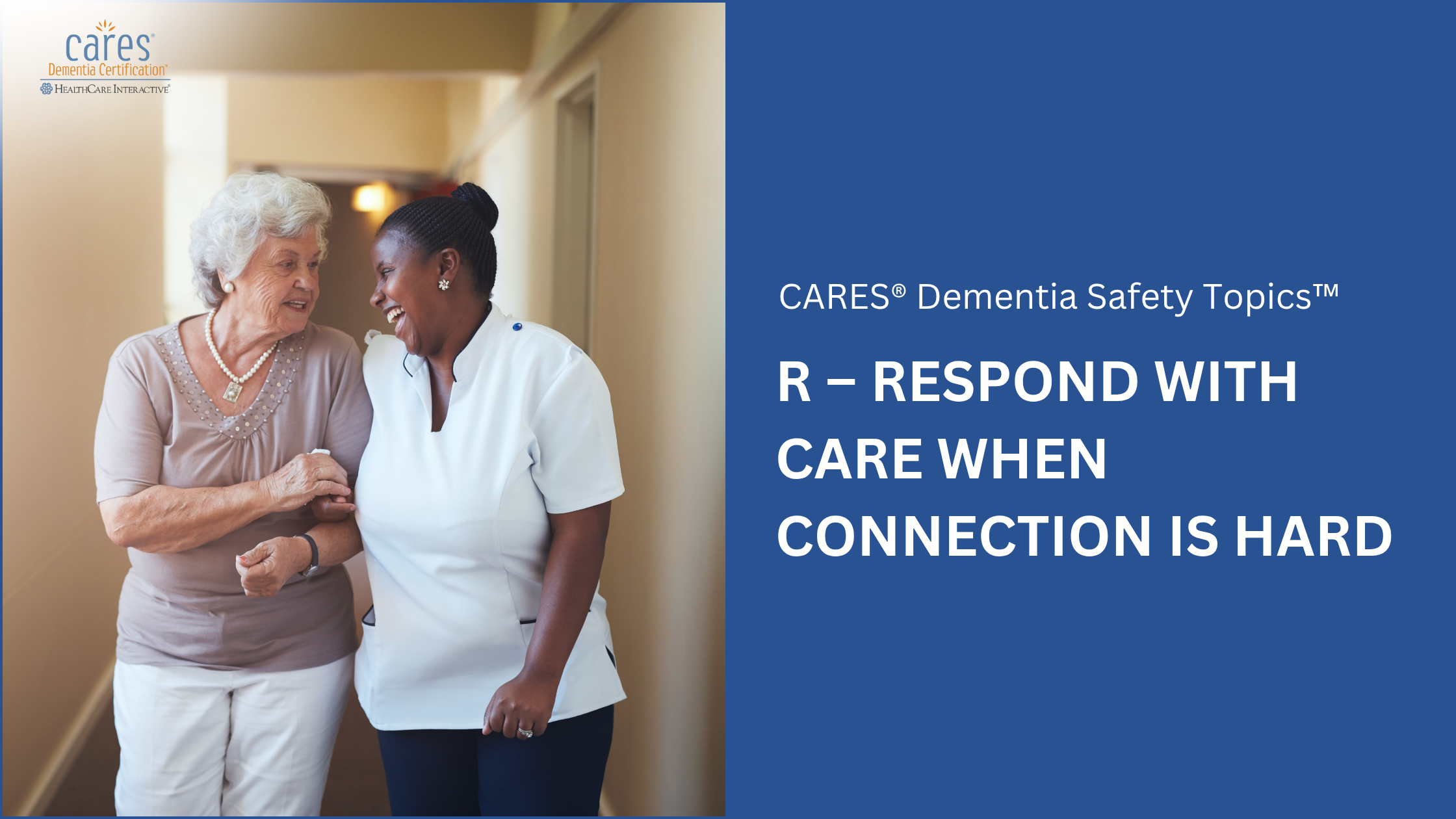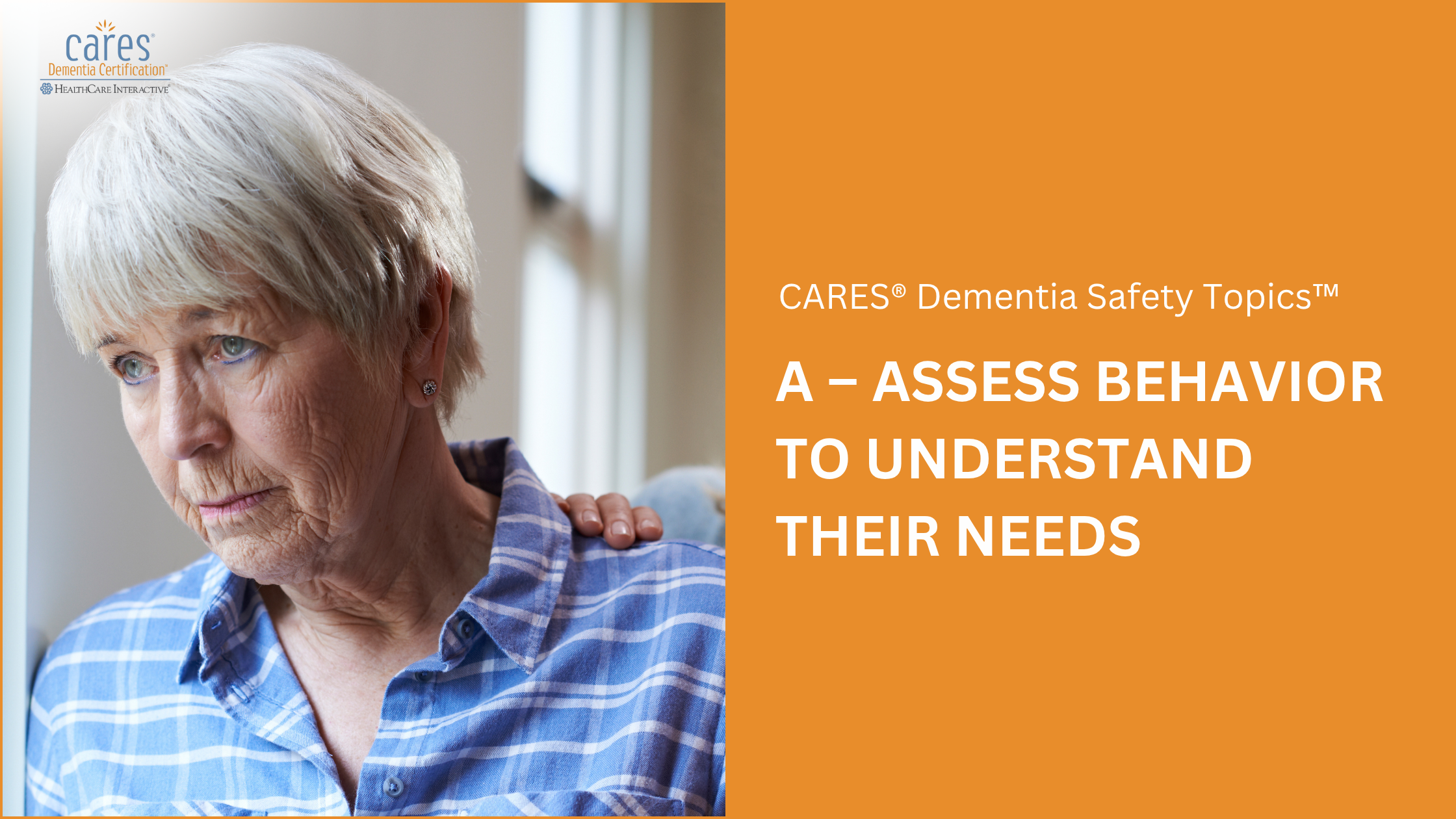For people living with dementia, mealtime should be more than just nourishment—it should be an opportunity to connect, engage, and feel comforted. The CARES® Approach offers a practical, person-centered method to make this possible. It begins with the first step: C – Connect with the Person.
Getting to know the person—who they are, where they come from, and what brings them joy—can greatly improve their mealtime experience.
Connecting Through Personal History
Understanding the personal background of someone living with dementia offers valuable insight into how best to connect with them and support their needs. Here are a few examples of how this knowledge can help guide meaningful interactions during mealtime.
1. Someone who grew up in a large family may associate mealtimes with lively conversations and shared experiences. Seating them with others who enjoy chatting during meals can help recreate that familiar and comforting atmosphere.
2. If the person has a background in working at a family restaurant, talking about those responsibilities—such as cooking, serving, or cleaning—can spark memories and engagement.
3. When encouraging fluids, find ways to link drinks to their interests. For instance, if they enjoy sports, raise a toast related to their favourite team to make the moment more meaningful.
4. If the individual enjoys outdoor activities like gardening or yard work, choose a seat near a window, enjoy a snack together, and talk about the flowers, trees, or weather outside. These natural connections can promote calmness and conversation.
Connecting with a person living with dementia means seeing beyond their condition and recognizing the unique life they’ve lived. By understanding their personal history, interests, and routines, caregivers can create mealtime experiences that feel familiar, comforting, and respectful. The first step in the CARES® Approach—Connect with the Person—reminds us that meaningful care begins with meaningful connection. Even small gestures rooted in personal knowledge can lead to greater trust, improved participation, and a deeper sense of dignity at every meal.
Helping someone with dementia starts with understanding and support. To make that journey easier, get 10% OFF any training and certification program with promo code SunnyJuly at checkout. Offer valid through July 31, 2025.

